By Ashley Bean Thornton
The next gathering of the Act Locally Waco Book Club is Jan 10, 6-8 pm, at the Good Neighbor House, 2301 Colcord Ave. We’ll be discussing, Freedom Colonies: Independent Black Texans in the Time of Jim Crow, by Thad Sitton and James H. Conrad.
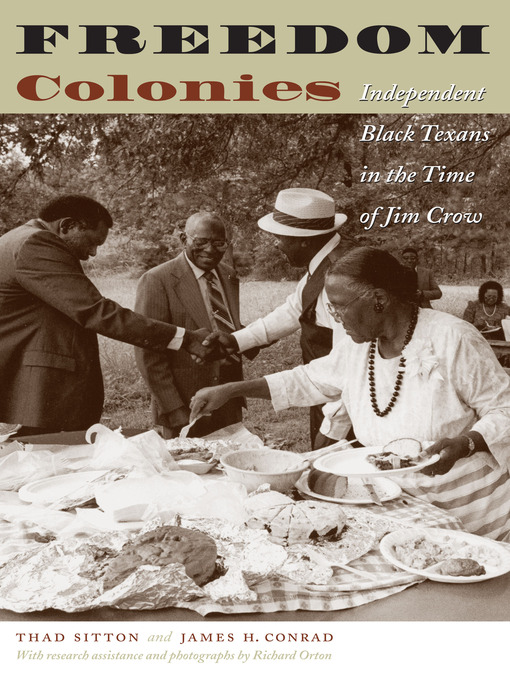
Here’s some information about the book:
Freedom Colonies is a history of independent African American settlements in Texas during the Jim Crow era, featuring historical and contemporary photographs.
In the decades after the Civil War, nearly a quarter of African Americans achieved a remarkable victory — they got their own land. While other ex-slaves and many poor whites became trapped in the exploitative sharecropping system, these independence-seeking individuals settled on pockets of unclaimed land that had been deemed too poor for farming and turned them into successful family farms.
In these self-sufficient rural communities, often known as “freedom colonies,” African Americans created a refuge from the discrimination and violence that routinely limited the opportunities of blacks in the Jim Crow South.
Freedom Colonies is the first book to tell the story of these settlements. Sitton and Conrad focus on communities in Texas, where Black residents achieved a higher percentage of land ownership than in any other state of the South. The authors draw on ex-slave narratives, oral histories, written memoirs, and public records to describe how the colonies formed. The authors also recreate the “lifeways” of African Americans who made their living by farming or in skilled trades, such as milling and blacksmithing.
They explain the forces that led to the decline of the communities from the 1930s onward, including economic hard times and the greed of Whites who found legal and illegal means of taking Black-owned land. The authors visit some of the remaining communities to discover how their independent way of life endures into the 21st century.
—–
Stay safe and if you have comments or thoughts, please don’t hesitate! Email us!
Do you have friends who want to join our book club? Sign up to be on the mailing list here.
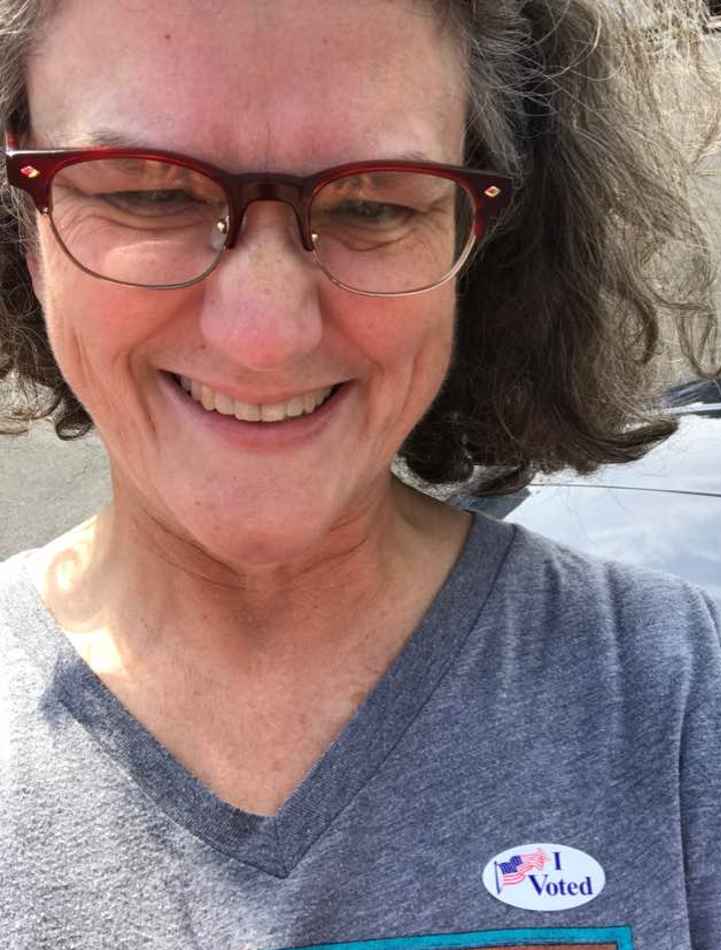
Ashley Bean Thornton is the founder of both Act Locally Waco and the Book Club. She still leads the Book Club, and our community is the great beneficiary.
By Ashley Bean Thornton
The next gathering of the Act Locally Waco Book Club will be 6-8 pm Nov. 1 at the Good Neighbor House, 2301 Colcord Avenue. In honor of all the new sidewalks popping up all over town, we’ll be discussing Sidewalks of the Kingdom, by Eric O. Jacobsen.
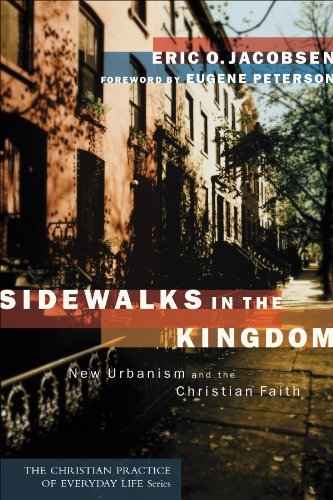
Here’s a brief description: “Christians often talk about claiming our cities for Christ and the need to address urban concerns. But according to Eric Jacobsen, this discussion has remained far too abstract. Sidewalks in the Kingdom challenges Christians to gain an informed vision for the physical layout and structure of the city.
Jacobsen emphasizes the need to preserve the nourishing characteristics of traditional city life, including shared public spaces, thriving neighborhoods, and a well-supported local economy. He explains how urban settings create unexpected and natural opportunities to initiate friendship and share faith in Christ.”
Stay safe and if you have comments or thoughts, please don’t hesitate. Email us!

Ashley Bean Thornton is the founder of Act Locally Waco and continues to lead the ALW Book Club. Your may respond to her email address or to the regular ALW email.
By Ashley Bean Thornton
Our next ActLocallyWaco Book Club gathering is 6-8 pm Tuesday, Sept. 13, in Waco Central Library’s large meeting room, 1717 Austin Ave.
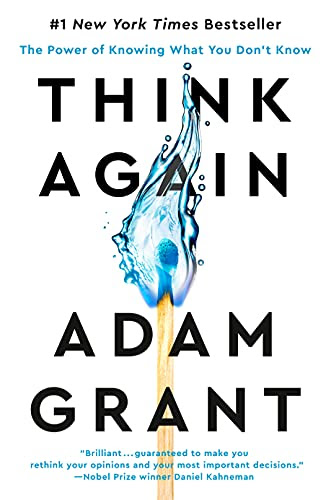
Our book is THINK AGAIN: The Power of Knowing What You Don’t Know by Adam Grant. The THINK AGAIN website, https://adamgrant.net/book/think-again/, has a quiz to get you thinking.
Here’s a link to a good interview with the author, Grant, on Hidden Brain.
https://podcasts.apple.com/us/podcast/hidden-brain/id1028908750?i=1000577711904
Finally, here’s a brief description of the book:
“The bestselling author of Give and Take and Originals examines the critical art of rethinking: learning to question your opinions and open other people’s minds, which can position you for excellence at work and wisdom in life.
Intelligence is usually seen as the ability to think and learn, but in a rapidly changing world, there’s another set of cognitive skills that might matter more: the ability to rethink and unlearn. In our daily lives, too many of us favor the comfort of conviction over the discomfort of doubt. We listen to opinions that make us feel good, instead of ideas that make us think hard. We see disagreement as a threat to our egos, rather than an opportunity to learn. We surround ourselves with people who agree with our conclusions, when we should be gravitating toward those who challenge our thought process. The result is that our beliefs get brittle long before our bones. We think too much like preachers defending our sacred beliefs, prosecutors proving the other side wrong, and politicians campaigning for approval–and too little like scientists searching for truth. Intelligence is no cure, and it can even be a curse: being good at thinking can make us worse at rethinking. The brighter we are, the blinder to our own limitations we can become.
Organizational psychologist Adam Grant is an expert on opening other people’s minds–and our own. As Wharton’s top-rated professor and the bestselling author of Originals and Give and Take, he makes it one of his guiding principles to argue like he’s right but listen like he’s wrong. With bold ideas and rigorous evidence, he investigates how we can embrace the joy of being wrong, bring nuance to charged conversations, and build schools, workplaces, and communities of lifelong learners. You’ll learn how an international debate champion wins arguments, a Black musician persuades white supremacists to abandon hate, a vaccine whisperer convinces concerned parents to immunize their children, and Adam has coaxed Yankees fans to root for the Red Sox. Think Again reveals that we don’t have to believe everything we think or internalize everything we feel. It’s an invitation to let go of views that are no longer serving us well and prize mental flexibility over foolish consistency. If knowledge is power, knowing what we don’t know is wisdom.”
Stay safe and if you have comments or thoughts, please don’t hesitate! Email us!
Ashley Bean Thornton leads the Act Locally Waco Book Club and is the founder of ALW.
By Matt Hess
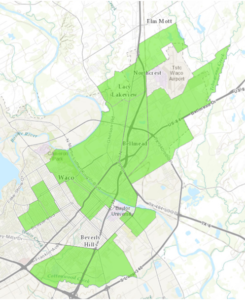
The areas marked green have low income and low access to food according to the USDA Food Access Research Atlas.
Have you ever thought about how difficult it is to get nutritious food if you don’t have a car? The USDA defines a “food desert” as a geographic area where affordable and nutritious food is difficult to obtain, particularly for those without access to an automobile. Research links food deserts to diet-related health problems like diabetes, obesity and heart disease. 57,983 people in Waco live in USDA-declared “Food Desert” tracts; that is 46.5% of our total population. This issue received quite a bit of attention recently when two HEB stores merged into one and a third HEB closed its doors – creating even greater distances between affordable, healthy food and some of the people who need it. Unfortunately, it seems like many of the areas where people most need access to fresh fruits and vegetables are not the most practical, from a business point of view, for a food retailer to set up shop.
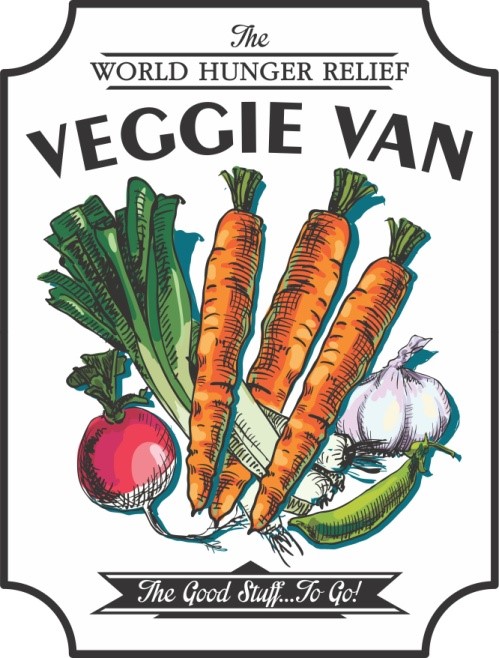 With all that in mind, World Hunger Relief, Inc. (WHRI) is launching a new program called the “Veggie Van.” The Veggie Van, a mobile vegetable stand, will allow us to sell vegetables for short periods of time when large crowds gather, i.e. at the end of the school day or after a church service. This will allow us to keep our costs low while providing vegetables in a way that is convenient to families.
With all that in mind, World Hunger Relief, Inc. (WHRI) is launching a new program called the “Veggie Van.” The Veggie Van, a mobile vegetable stand, will allow us to sell vegetables for short periods of time when large crowds gather, i.e. at the end of the school day or after a church service. This will allow us to keep our costs low while providing vegetables in a way that is convenient to families.
The Veggie Van idea is the result of study, careful thought, conversation, experimentation and collaboration around the subject of nutrition in Waco. In the last several years there have been numerous assessments and community input meetings conducted about this issue. The WHRI staff and I attended as many of these meetings as possible.
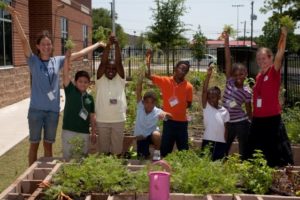 Ten years ago WHRI completed an assessment of food issues in our area. This assessment led us to pursue school gardening as a way to address a need expressed by the community and to develop relationships for future efforts at improving the nutrition of those in Waco. School gardens are still an important part of our strategy, this year there are 5 schools that are visited weekly by our interns. In these programs I have seen students eagerly trying new vegetables as they develop skills in gardening and food production. As students’ interest in healthy eating increased, we became more aware of food deserts in our community. We encourage students to eat healthily but the environment in their neighborhoods and lack of access to fresh produce makes it difficult for their families to change their eating habits.
Ten years ago WHRI completed an assessment of food issues in our area. This assessment led us to pursue school gardening as a way to address a need expressed by the community and to develop relationships for future efforts at improving the nutrition of those in Waco. School gardens are still an important part of our strategy, this year there are 5 schools that are visited weekly by our interns. In these programs I have seen students eagerly trying new vegetables as they develop skills in gardening and food production. As students’ interest in healthy eating increased, we became more aware of food deserts in our community. We encourage students to eat healthily but the environment in their neighborhoods and lack of access to fresh produce makes it difficult for their families to change their eating habits.
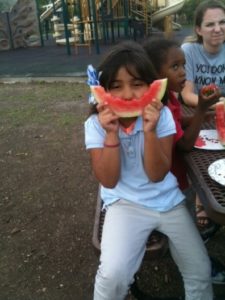 Through the Act Locally Waco book club I read the book Switch by Chip and Dan Heath. My short synopsis of the book is that to make personal or group changes three things need to be in place: (1) knowledge of why the change needs to be made, (2) motivation to change, and (3) an environment that allows for this change. Our work with the school garden clubs touches on the first two — we have seen an increase in knowledge and motivation about eating healthy foods. We are also working with many partners who provide education about good nutrition, cooking skills and how to stretch food dollars. Building an environment that allows for change is more challenging, we think the Veggie Van will be a good way to begin to address that issue.
Through the Act Locally Waco book club I read the book Switch by Chip and Dan Heath. My short synopsis of the book is that to make personal or group changes three things need to be in place: (1) knowledge of why the change needs to be made, (2) motivation to change, and (3) an environment that allows for this change. Our work with the school garden clubs touches on the first two — we have seen an increase in knowledge and motivation about eating healthy foods. We are also working with many partners who provide education about good nutrition, cooking skills and how to stretch food dollars. Building an environment that allows for change is more challenging, we think the Veggie Van will be a good way to begin to address that issue.
Starting, January 14, 2015, the Veggie Van will be selling vegetables with the congregation of St. Luke AME church on the corner of Elm St. at Church St. near the Paul Quinn Campus. At WHRI we hold tightly to the value of working with and supporting other organizations. One of the most exciting things about the Veggie Van is that it will let us add value to work St. Luke and other churches and organizations are already doing in Waco. St. Luke has a great proactive food ministry including a community garden and an outreach program that helps people sign up for SNAP benefits (food stamps) right at the church. The Veggie Van will be a natural supplement to these existing programs. As we look for other locations we are hoping to work with other organizations who are already doing good work in the area of food and nutrition.
We would love to include you in our holistic food ministry. I hope you come and visit us at the van and pick up some great locally grown food for your family. We will be looking for volunteers to help on the van and to help spread the word throughout the community. If you are interested in helping, or if you are just curious, give us a call (254-799-5611), drop us an e-mail ([email protected]) or come see us at one of these opening week events:
- January 14th – 3:00 PM – the Veggie Van opens for business for the first time at St. Luke AME.
- January 14th – 6:00 PM – the Veggie Van blessing ceremony at St. Luke AME.
- January 17th – 11:00 AM – ribbon cutting at the Waco Downtown Farmers Market.
- January 19th – 11:00-2:00 – The van will visit all of the gardens participating in the MLK Day Day of service the around Waco. We will have more details on our Facebook soon.
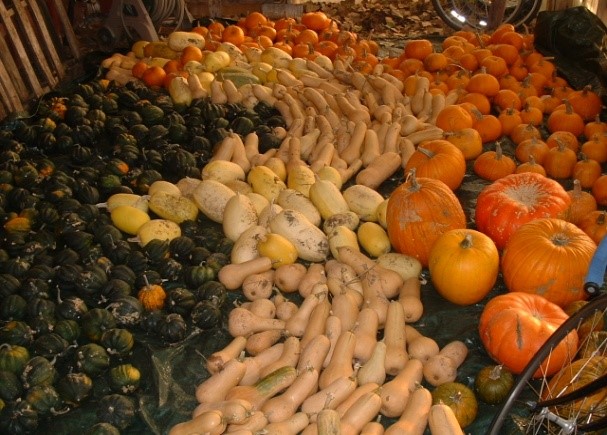 For more information about the Veggie Van Project and how you can get involved, please take a moment to visit the website: worldhungerrelief.org/veggie-van, or follow us on social media (Facebook: facebook.com/whriwaco. Twitter:@whriwaco). If you are interested in hosting the van at your church, organization, or other location please fill out the application here. If you would like to contribute financially, we would sure appreciate it. Here’s the link: Donate.
For more information about the Veggie Van Project and how you can get involved, please take a moment to visit the website: worldhungerrelief.org/veggie-van, or follow us on social media (Facebook: facebook.com/whriwaco. Twitter:@whriwaco). If you are interested in hosting the van at your church, organization, or other location please fill out the application here. If you would like to contribute financially, we would sure appreciate it. Here’s the link: Donate.
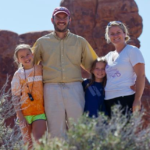 Today’s Act Locally Waco blog post was written by Matt Hess. Matt grew up in Boulder, CO. He came to Waco to attend Baylor where he received a Bachelors of Science in Education in History. Afterwards, he stayed in Waco and taught at a school for troubled youth. As a teacher, he saw the difference that working with animals and gardens made on his students, and he began volunteering at WHRI partially with the intention of developing more skills in agriculture and community development. Matt joined WHRI as the Education Director in 2006 years and 6 years later transitioned to his role as Executive Director.
Today’s Act Locally Waco blog post was written by Matt Hess. Matt grew up in Boulder, CO. He came to Waco to attend Baylor where he received a Bachelors of Science in Education in History. Afterwards, he stayed in Waco and taught at a school for troubled youth. As a teacher, he saw the difference that working with animals and gardens made on his students, and he began volunteering at WHRI partially with the intention of developing more skills in agriculture and community development. Matt joined WHRI as the Education Director in 2006 years and 6 years later transitioned to his role as Executive Director.
The Act Locally Waco blog publishes posts with a connection to these aspirations for Waco. If you are interested in writing for the Act Locally Waco Blog, please email [email protected] for more information.
